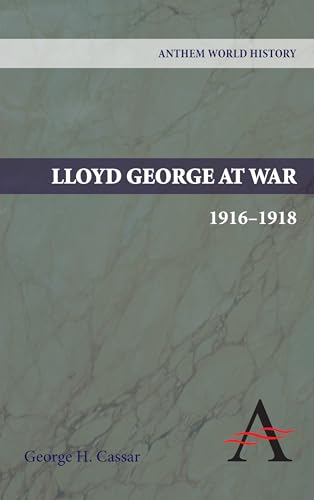
Lloyd George at War, 1916-1918
by George H. Cassar
Popularity
0.11 / 5
* A book's popularity is determined by how it compares to all other books on this website.
Where to buy?
Buy from Amazon* If you buy this book through the link above, we may receive a small commission at no extra cost to you.
Lloyd George at War, 1916-1918 by George H. Cassar
Details
War:
World War I
Perspective:
Commanders
True Story:
Yes
Biography:
No
Region:
Europe
Page Count:
465
Published Date:
2009
ISBN13:
9781843317937
Description
Brief Summary
'Lloyd George at War, 1916-1918' by George H. Cassar provides a detailed examination of David Lloyd George's role during the critical years of World War I. The book challenges the established notion that Lloyd George was chiefly responsible for Britain's victory in the war, offering a provocative perspective that reconsiders his contributions and decisions during this pivotal period.
Main Themes and Topics
The book delves into several fascinating themes, including the intricacies of wartime leadership and strategic decision-making. Cassar scrutinizes Lloyd George's political maneuverings and his interactions with both domestic and military advisers. Through meticulous research, the author argues that Lloyd George's role in the war efforts was not as decisive as traditionally portrayed, prompting readers to reevaluate the dynamics within the wartime government and military leadership.
Writing Style and Tone
George H. Cassar presents his findings with a scholarly tone, backed by thorough research and a comprehensive review of historical documents and testimonies. His analytical style is straightforward and detailed, effectively guiding the reader through complex political and military issues. Cassar's approach is both critical and engaging, making this a compelling read for those interested in World War I history and political analysis.
Criticism
Some readers and historians may find Cassar's stance controversial, particularly those who hold the view that Lloyd George was instrumental in the Allied victory. The book's attempt to reassess and potentially diminish Lloyd George's contributions may not sit well with everyone, sparking debates about the interpretations of historical influence and leadership during wartime.









